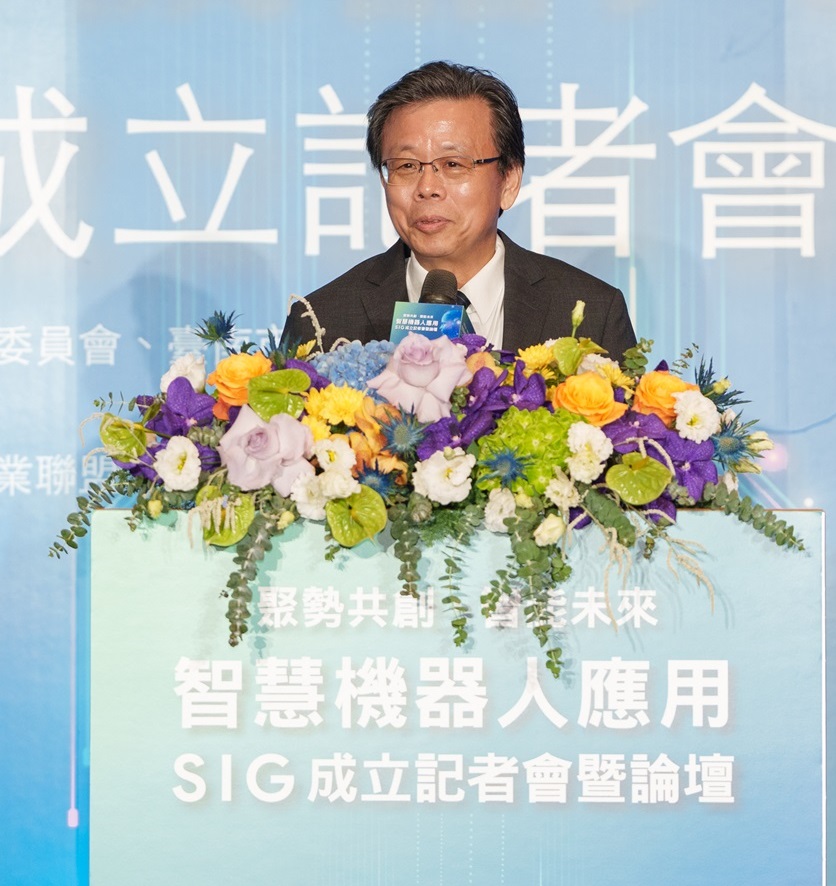National Science and Technology Council Drives Smart Robotics National Strategy and Deployment

Minister Cheng-Wen Wu of the National Science and Technology Council (NSTC) is driving Taiwan’s smart robotics industry, framing it as a key national policy to position Taiwan in the global AI and robotics landscape.
The Executive Yuan has approved the “Smart Robotics Industry Development Plan”, integrated with the “Greater Southern New Silicon Valley Promotion Plan”. Starting in southern Taiwan, the initiative aims to reduce regional development gaps and promote technology-driven growth. Minister Wu emphasized a usage-oriented approach, applying smart robotics across daily life, education, healthcare, transportation, and industry.
Smart robotics centers on AI-driven intelligence, enabling robots to address labor shortages and perform high-risk, heavy, or repetitive tasks. Future robots will focus on autonomous problem-solving and task execution in fields such as firefighting, construction, agriculture, and care services.
Development is led by the Ministry of Economic Affairs and NSTC, in collaboration with other ministries, integrating robots into government services to enhance efficiency. Tainan is a key hub, hosting the AI Industry Ecosystem Park, the Smart Systems Integration Manufacturing Platform, and planned research and manufacturing centers, supported by initiatives like the Taiwan Chip-based Industrial Innovation Program.
NSTC also highlights collaboration on talent, software, and AI model development, aiming to advance smart robotics for smart city construction and global solution export, realizing President Lai’s vision of “The Island of Artificial Intelligence.”
ASUS and Smart City Solutions Alliance Focus on Physical AI and Field Validation

ASUS, as chair of the Taiwan Smart City Solutions Alliance and co-convener of the Smart Robotics Application SIG, attended the event, marking an important milestone for Taiwan’s smart robotics industry. ASUS has been a pioneer since 2015, developing service and companion robots such as Zenbo, though early AI voice recognition and limited field testing constrained market adoption.
With the recent advancement of large language models (LLMs), AI’s capabilities in speech understanding and reasoning have greatly improved, enabling more applications for robots and accelerating the arrival of the “Physical AI” era, as described by Jensen Huang.
The alliance stresses that field-validated applications are crucial. Smart cities provide ideal testbeds for companion robots in hospitals and nursing homes, guide robots in hotels and malls, and automated handling and inspection robots in logistics and factories. Real-world experience helps create products that meet market needs and integrate seamlessly into daily life and industrial workflows.
The alliance is collaborating with Tainan City Government to establish the Smart Robotics Application SIG and participate in the city’s robotics industrial park, aiming to form an industrial cluster. Advancing smart robotics requires joint efforts across the public sector, private sector, academia, and research institutions. The SIG serves as a core platform to connect resources, integrate applications, and promote standards, positioning smart robotics as a key driver of Taiwan’s smart cities and a globally recognized industry.
Taiwan is accelerating its smart robotics development, with the National Science and Technology Council (NSTC) leading the nation’s strategy. Minister Cheng-Wen Wu highlighted that this initiative marks a key step in Taiwan’s positioning within the global AI and smart robotics wave. The program integrates with the Greater Southern New Silicon Valley Plan, aiming to balance regional development and apply AI-driven robots across sectors such as healthcare, education, transportation, and industry.
Tainan has been designated as a major hub, with the establishment of the AI Industry Ecosystem Park, the Taiwan Smart Systems Integration Manufacturing Platform, and plans for national research centers and manufacturing bases. The government is also supporting talent development, AI model innovation, and key chip technologies to strengthen the industry.
ASUS and the Taiwan Smart City Industry Alliance emphasized the importance of Physical AI and field validation. By testing robots in real-world environments—hospitals, elder care, hotels, malls, logistics, and factories—Taiwan aims to develop market-ready solutions that integrate seamlessly into daily life and industrial workflows.
The establishment of the Smart Robotics Application SIG in collaboration with the Tainan City Government will serve as a platform for industry, academia, and government to coordinate resources, promote standards, and position Taiwan’s smart robotics industry as a global leader and key driver of smart city development.